China Distribution: How to Find and Manage Distributors? (Done By expert)
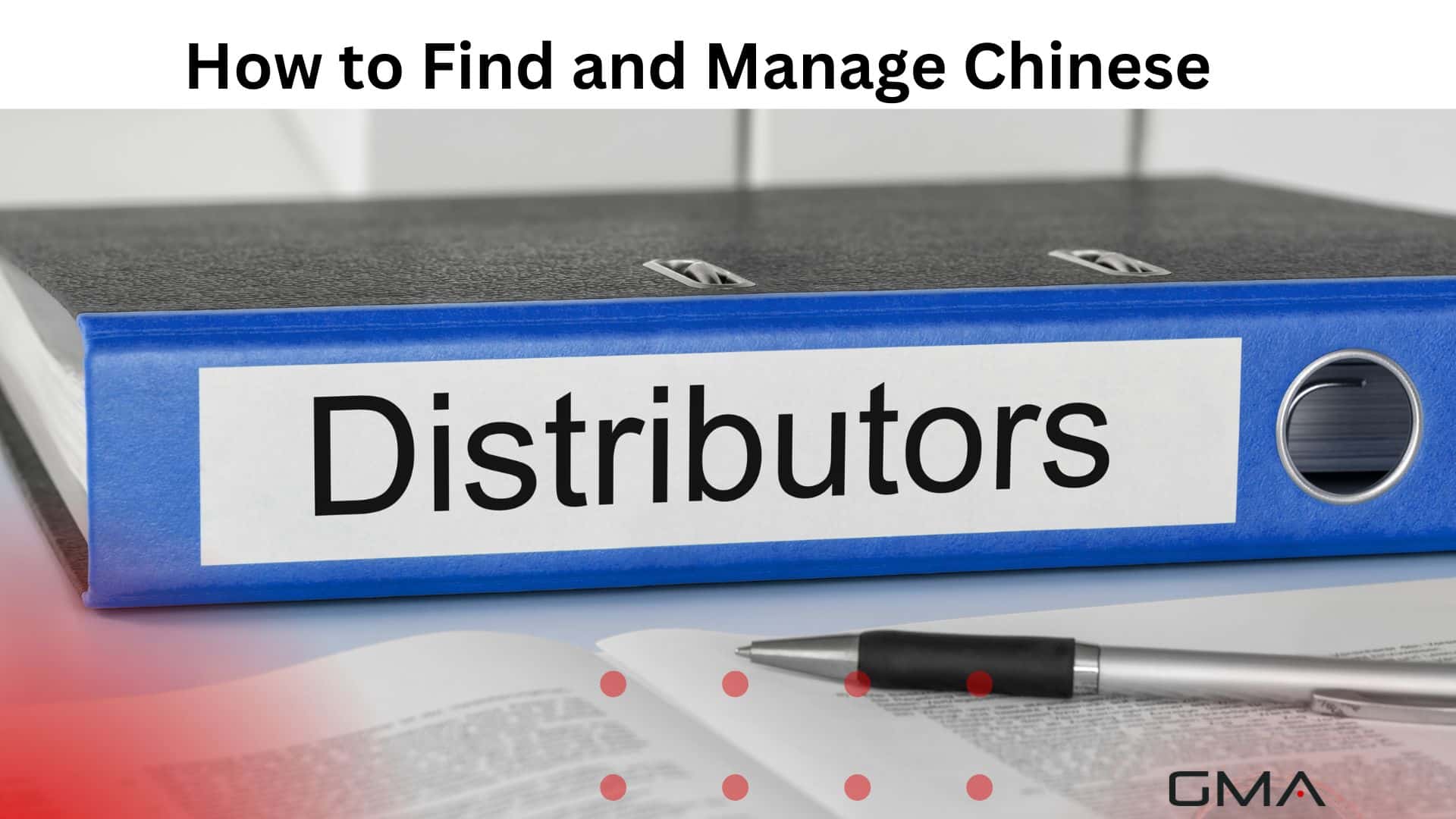
In 2024 Expanding into the Distribution in China, can be a lucrative opportunity for foreign companies, and a key aspect of success lies in finding and effectively managing Chinese distributors. Chinese distributors serve as valuable intermediaries, connecting foreign companies with the vast consumer base and distribution channels within China.
However, navigating the process of finding and managing a Chinese distributor requires careful planning and understanding of the Chinese business landscape.
Cost-Effective Agency
KPI and Results focused. We are the most visible Marketing Agency for China. Not because of huge spending but because of our SMART Strategies. Let us help you with: E-Commerce, Search Engine Optimization, Advertising, Weibo, WeChat, WeChat Store & PR.
In this guide, we will explore strategies and best practices for finding suitable Chinese distributors and establishing successful partnerships.
- Finding Chinese distributors involves a combination of market research, networking, and leveraging available resources.
- It is crucial to gain a deep understanding of the Chinese market, including consumer preferences, regional variations, and market trends.
- This knowledge will guide the search for distributors who align with the company’s target market and product offerings.
- Online platforms, trade directories, trade shows, industry associations, and chambers of commerce can be valuable resources for identifying potential distributors.
- Additionally, building a network of industry contacts and seeking referrals can help identify reputable distributors with a proven track record.
If you want to find distributors we can help you, skip the Article and contact us.
- We have list of distributors,
- We have expertise ad know how
- We have business developpers in China

FULL GUIDE TO CHINESE DISTRIBUTORS (update 2024)
Benefits of Working with Chinese Distributors
Collaborating with Chinese companies and distributors offers numerous benefits for businesses seeking to establish a presence or enter the Chinese market. Here are some key advantages:
Local Market Knowledge
Local distributors possess deep insights into the local market, including consumer preferences, purchasing habits, and cultural nuances. Their expertise helps businesses tailor their products, marketing strategies, and customer experiences to effectively meet the needs and preferences of Chinese consumers.
The Networks (necessary)
Distributors in China have extensive networks of retailers, wholesalers, e-commerce platforms, and other key market players. Partnering with a distributor grants businesses immediate access to these networks, expanding their distribution channels and market reach. Leveraging these existing relationships can significantly accelerate market entry and expansion.
Regulatory Compliance
Navigating China’s complex regulatory landscape can be challenging for foreign businesses. Distributors are well-versed in local regulations, licenses, certifications, and compliance requirements. They can provide valuable guidance and support, ensuring businesses meet all necessary regulatory obligations and minimizing the risk of non-compliance.
Logistic: be efficient
Chinese distributors have established logistics capabilities, including warehousing, transportation, and inventory management.
By partnering with a distributor, businesses can leverage their infrastructure and expertise to streamline supply chain operations. This ensures efficient product distribution, timely delivery, and optimized inventory management.

Market Insights
Chinese distributors possess up-to-date market intelligence, enabling businesses to stay informed about market trends, consumer behavior, and competitive dynamics.
This information helps businesses make informed decisions regarding
- product development, packaging
- pricing strategies,
- Trade licences
- marketing campaigns
- Best practices
- positioning.
Retail Visibility
Distributors often have strong relationships with retailers, e-commerce platforms, and other distribution channels. Partnering with a distributor can enhance brand visibility and increase opportunities for prime shelf space, online exposure, and promotional activities. This boosts brand recognition and sales potential in the Chinese market.
After-sales Support
Distributors often offer after-sales support, including customer service, warranty management, and product repairs. This ensures businesses can provide a seamless customer experience, maintain high customer satisfaction levels, and build long-term loyalty.
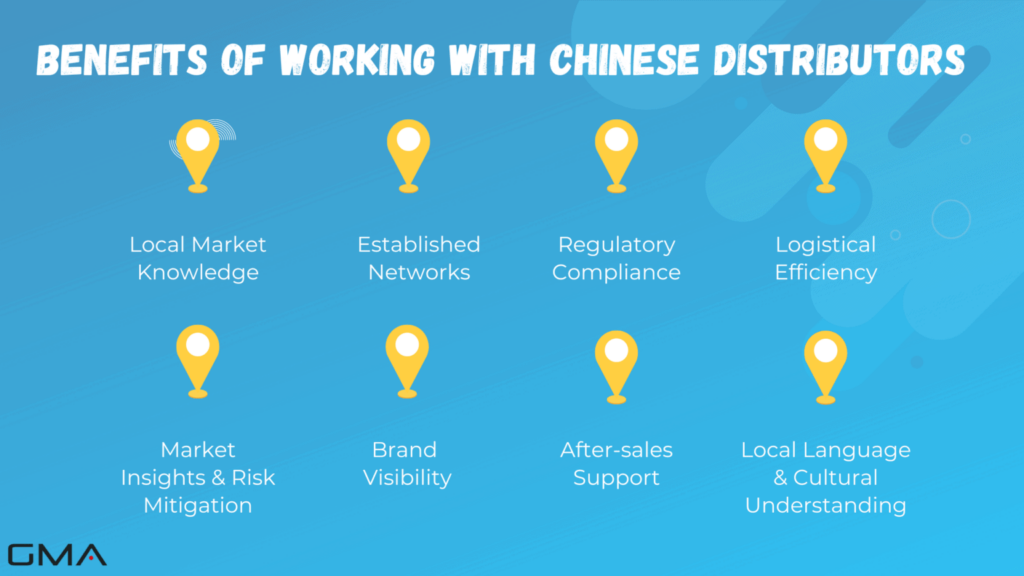
Finding Chinese Distributors in 2024
It is more complicated for old fashion brands. Chinese distributors want innovative brand with good sens of branding.
Understanding of the Chinese Market
Conducting through practical market research is essential when seeking a Chinese supplier or a distributor.
This involves understanding the unique characteristics of the Chinese market, including consumer preferences, purchasing behavior, regional variations, and market trends, compared this to the competition
It is crucial to identify the target market segment and determine the demand for the products or services being offered. By gaining a deep understanding of the Chinese market, businesses can effectively identify potential distributors that align with their target audience and product offerings.
Online Platforms and Trade Directories ? BS it does not works
Online platforms and trade directories are NOT valuable resources for finding Chinese distributors. Websites such as Alibaba, Made-in-China, and Global Sources host comprehensive databases of suppliers BUT not to distributors in China.
You can try but … full of crap
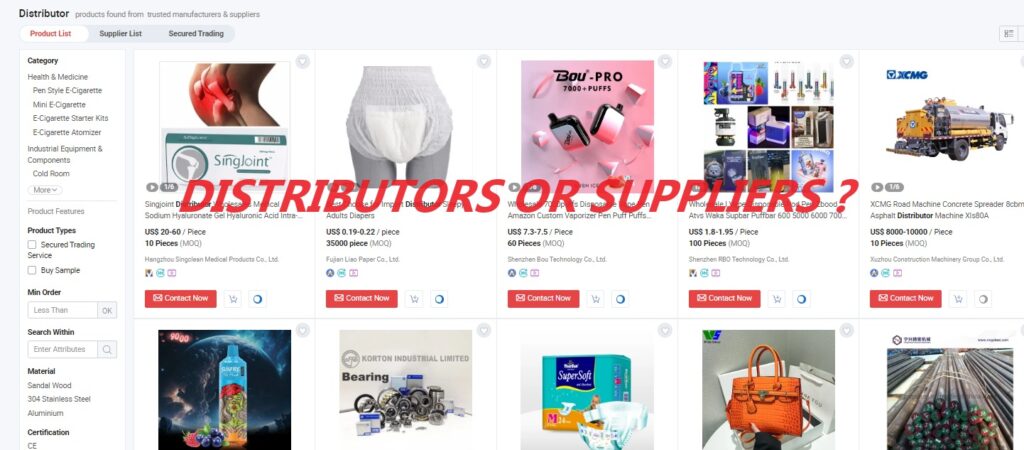
Trade Shows and Exhibitions
Trade shows and exhibitions offer excellent opportunities for international businesses to connect with potential Chinese distributors. China hosts numerous trade shows and industry-specific exhibitions throughout the year, showcasing a wide range of products and services.
Participating in these events allows businesses to meet distributors face-to-face, showcase their offerings, and establish direct connections. Engaging in conversations, gathering business cards, and exchanging information at these events can help initiate potential partnerships with suitable distributors.
GOOD SOLUTION but only if you invest in a great stand , have a good presence visibility

For small stands, very dfficult and they come back with almost nothing

Industry Associations and Chambers of Commerce , usually it does not work in China
Industry associations and chambers of commerce can provide valuable insights but do not have real opportunities to find Chinese distributors.
To sell locally in China, you need local networks.
These organizations often sell member directories or databases that include services in various industries but not direct contacts.
Our Advice NO NO NO

Guanxi , Networking and referrals
Networking plays a crucial role in finding Chinese distributors. Connecting with industry professionals, business contacts, and local partners can lead to valuable referrals. Attending business events, conferences, and seminars related to the industry can provide opportunities to meet potential distributors and gather recommendations.
Utilizing personal and professional networks, as well as seeking referrals from trusted sources, can help identify reputable distributors and establish initial contact based on trusted recommendations.
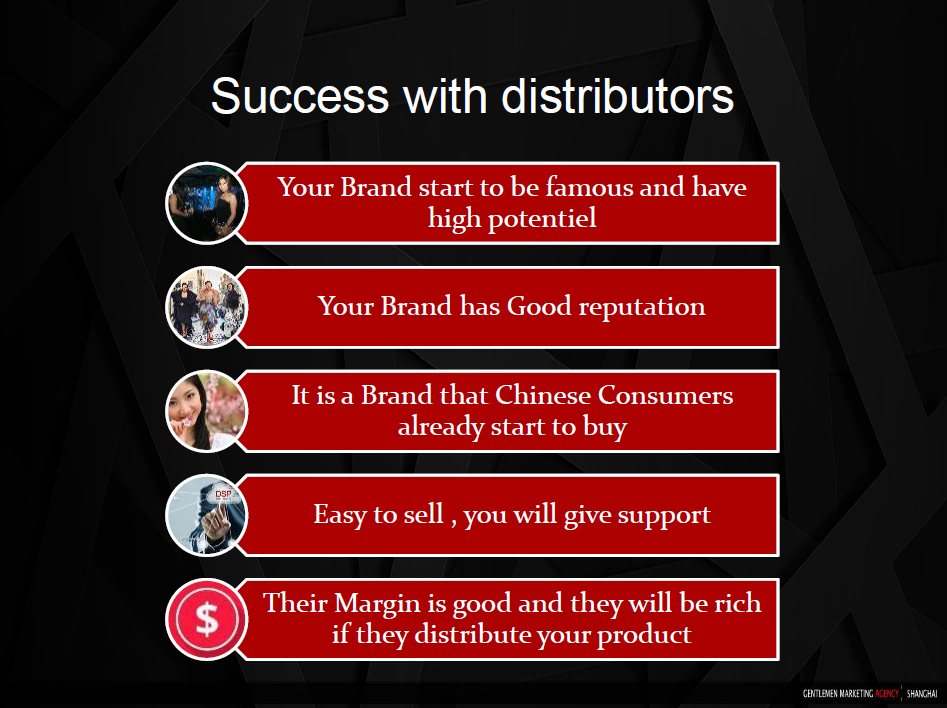
Boost your brand reputation to Get Trust among Chinese distributors
Before you try to find a local distributor, try to take care of some important tasks first, so you will show your potential distributor, that you’re not dependent on China distributors only.
- Start building brand awareness by setting up accounts on Chinese websites and social media platforms. Do thorough research and learn what you need to do to kick off your business in China and attract distributors to work with you.
- Start a Chinese website for example in the Chinese language and present your brand and products there, so that trading companies, customers, and China suppliers all will be able to check all the important information themselves. Highlight product quality, product specifications, payment and shipping terms, and the company’s story, so that Chinese people will know who you are.
- Remember to work on Reputation strategy, so you will rank high in the Baidu search engine. Nowadays, a website works as an initial contact method for any business, just like a business card in the old times. China is no different.
FAQ Sales quota, deciding about sales channels and trade shows, logistics, and so on.
Utilizing Chinese Social Media Platforms to Build Trust with Distributors
The brand has to spread its image on Chinese e-commerce platforms and social networks to gain popularity among Chinese consumers and to provide the maximum information on products. The brand has to work on its digital strategies and show Chinese distributors that the product attracts customers in China. Nowadays, more and more foreign companies are entering Chinese social media platforms, as they see the real potential of winning an audience there.
Although the selected platforms will depend on your products type, there are three main platforms that Chinese netizens use on daily basis:
WeChat THE email, phone, contact in China
WeChat is a messaging app that enables users to connect with each other and share information. The app can be used for a variety of purposes, including staying in touch with customers, conducting business transactions, and sharing news and updates.
Today it is considered one of the most successful e-commerce platforms, thanks to the huge community and features it provides.
There are some key features that you should consider to gain more visibility in China:
You Need a WeChat Official Account
WeChat’s official account is a platform provided by WeChat for companies, organizations, and individual users to publish their articles and connect with their followers. It offers a great way for verified users to build their brand and connect with fans.
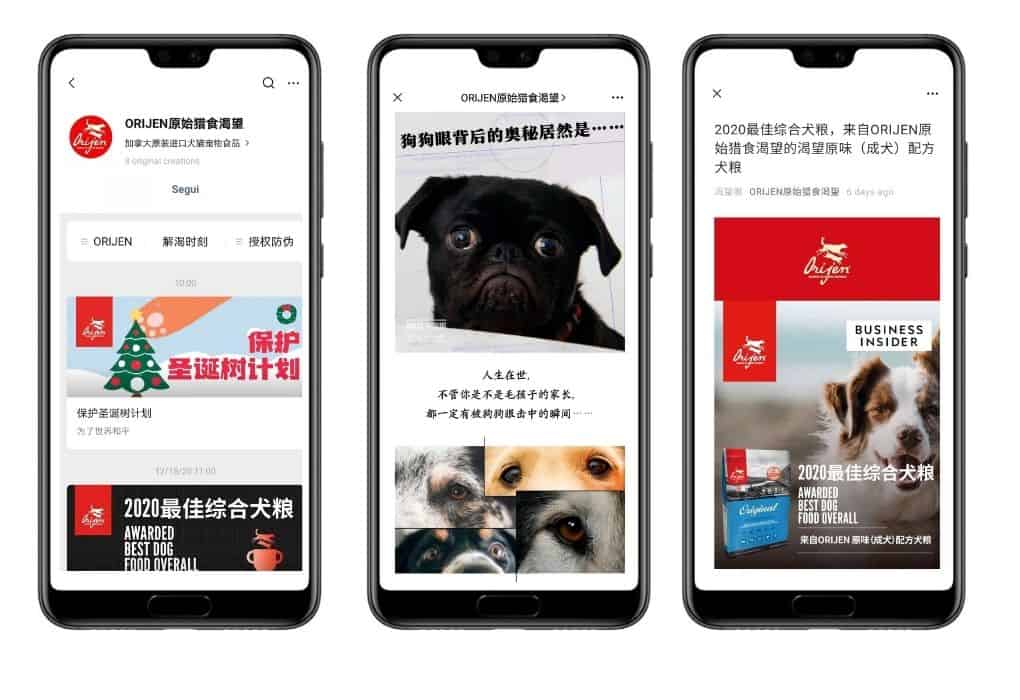
Users can share articles, images, videos, and audio files on the Wechat official account. In addition, they can also hold live interactive sessions with up to 500 people. This makes it an ideal platform for conducting online marketing campaigns and building relationships with customers or fans.
WeChat Brochure Instead of PDF Listing
Businesses can use WeChat to create a brochure that showcases their products and services. The brochure can be customized with the company’s logo, colors, and contact information. Prospective customers can then view the brochure and learn more about the business. This is an effective way to promote your brand in China to a large audience while fostering two-way communication.

There are a lot of benefits to having an H5 brochure on WeChat. Primarily, those brochures are easy to share and interactive, so it’s a nice way to present your brand and show potential distributors that you know the market. They are also cost-efficient and are a good alternative to PDF documents because they load faster and are more fun and intuitive to scroll through.
Expanding Your Business with a WeChat Mini Program Shop
WeChat Mini-programs are like apps within WeChat. They allow users to access a specific function, without having to leave the WeChat app. For businesses, this is a great way to offer a more streamlined user experience for customers and to keep them engaged with your brand. You can set up a shop within Wechat, which is way cheaper than entering Tmall or JD marketplaces.
Little Red Book (like instagram)
Little Red Book or Xiaohongshu is a social media app that allows users to share pictures and reviews of products they’ve purchased. It’s especially popular with millennials, who use it to find and buy products they’re interested in. Super useful for Branding in 2024
Xiaohongshu can be used for business in a few ways.
- Firstly, businesses can use it to advertise their products and promote sales.
- Secondly, businesses can use it to research new products and trends.
- Thirdly, businesses can use it to connect with customers and followers.
- Finally, businesses can use it to gather feedback on their products.
Weibo (not recommanded in 2024)
Weibo used to be a social media platform It’s very similar to Twitter, but has some unique features, such as the ability to post longer messages and include images and videos.
The key to using Weibo successfully for business is to be active and engage with followers regularly. Try to create interesting content that will resonate with Chinese consumers, and be prepared to respond to questions and feedback.
Using Public Relations in China to Find Distributors
In China, word-of-mouth is the most effective marketing and PR strategy.
Chinese netizens prefer to buy something recommended by a person they trust, whether it’s a family member, a friend, or a person they follow online. So in order to have a good presence in China, so that Chinese distributors will trust you, you need to take care of good public relations for your company.
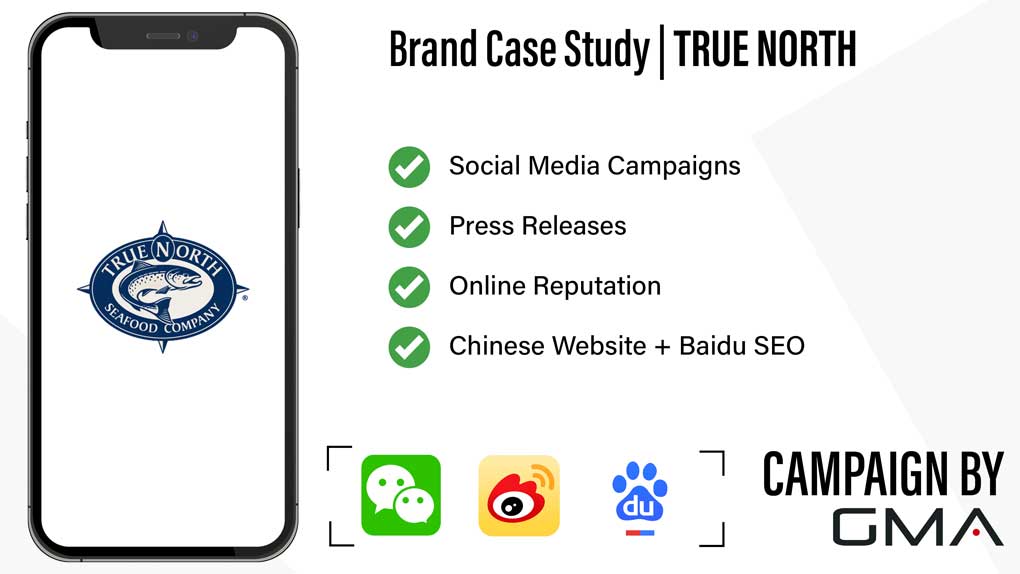
There are many different ways to build a positive image for a company or individual in China. Some of the most common methods include creating news stories that are favorable to the company or individual, issuing press releases, arranging interviews with journalists, and establishing relationships with influential people.
The goal of PR is to make sure that the company or individual is seen in a positive light by as many people as possible, including Chinese suppliers.
GMA We have a lot of experience with Brands * Distributors

Evaluating Potential Distributors in China ?
Complicated job.
Company Background and Reputation
When evaluating potential Chinese distributors, it is important to assess their company background and reputation. Research their history, years of operation, and track record in the industry. Look for customer reviews, testimonials, and references to gauge their reputation and reliability. A reputable distributor with a strong track record is more likely to deliver consistent and trustworthy services.
Distribution Network and Coverage
Evaluate the distribution network and coverage of potential distributors. Assess the geographic reach and extent of their distribution channels to ensure they can effectively reach the target market. Consider factors such as their network of retailers, wholesalers, and e-commerce platforms, as well as their ability to penetrate different regions and cities in China.
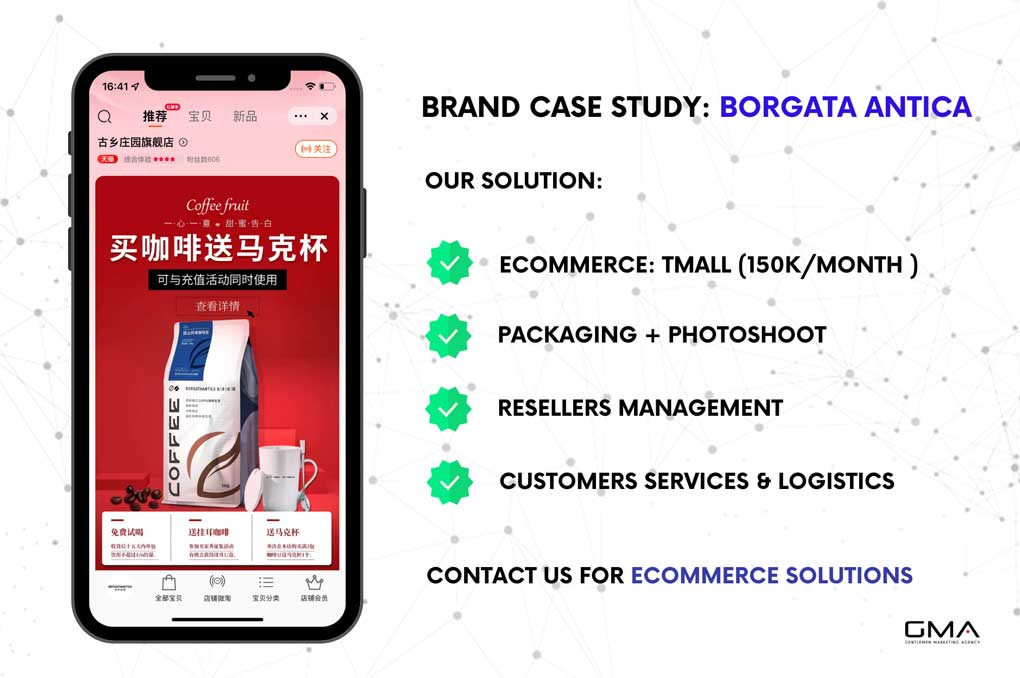
Product Portfolio and Alignment with Your Offerings
Consider the distributor’s product portfolio and whether it aligns with your offerings. Assess if they already distribute similar or complementary products in your industry. A distributor with experience in distributing similar products can bring valuable insights and leverage their existing network to effectively promote and sell your offerings.
Financial Stability and Capabilities
Evaluate the financial stability and capabilities of potential distributors. Request financial statements, inquire about their financial health, and assess their ability to invest in marketing, sales, and distribution activities. A financially stable distributor is more likely to have the necessary resources to support your business growth and navigate market challenges effectively.
It is almost impossible to get current datas in China
Cultural Fit and Communication Skills
Assess the cultural fit and communication skills of potential distributors. Effective communication is crucial for a successful partnership. Evaluate their ability to understand your company’s values, goals, and vision.
Consider cultural compatibility and the ability to bridge any language or communication barriers. A distributor with strong communication skills and a shared understanding of your business objectives can foster a smooth working relationship.
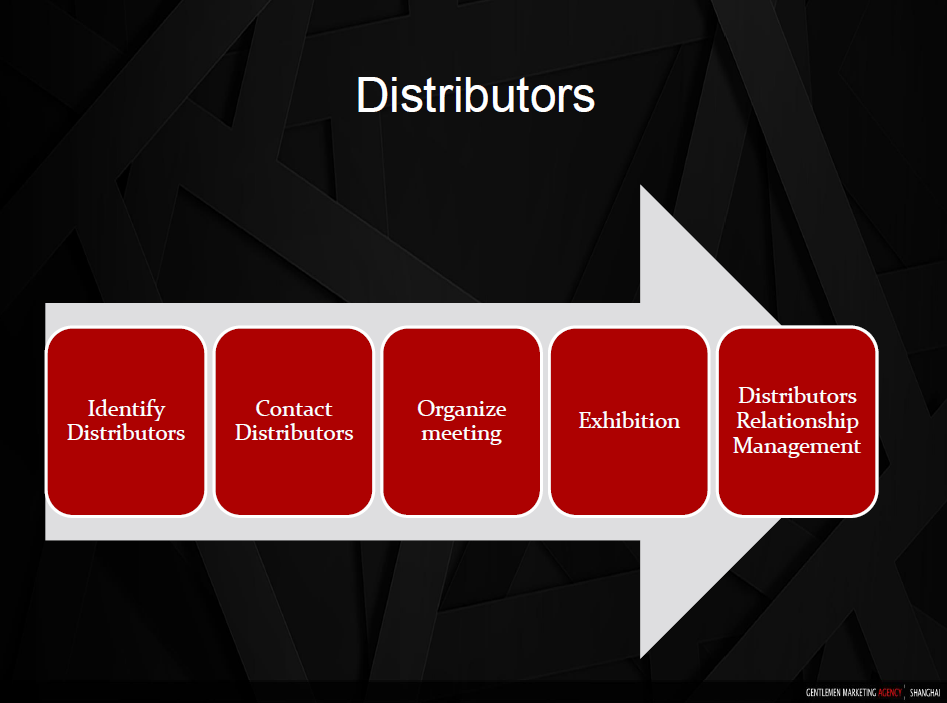
Negotiating and Establishing Distribution Agreements
During the negotiation process, it is essential to clearly define the distribution terms and territories. Determine the specific regions, cities, or areas where the distributor will have exclusive or non-exclusive rights to distribute your products. Clearly outline the scope of the distribution agreement to avoid any ambiguity or overlapping territories with other distributors.
Negotiate pricing, profit margins, minimum sales quota, and payment terms with the distributor. Establish a pricing structure that aligns with your business objectives and market dynamics. Discuss profit margins and ensure they are mutually beneficial for both parties. Additionally, agree upon payment terms, such as payment schedules, methods, and any discounts or incentives for timely payments.
Determine whether the distribution agreement will be exclusive or non-exclusive. An exclusive agreement grants the distributor sole rights to distribute your products in a defined territory, while a non-exclusive agreement allows you to work with multiple distributors. Consider the advantages and disadvantages of each option and negotiate terms that align with your distribution strategy and market objectives.
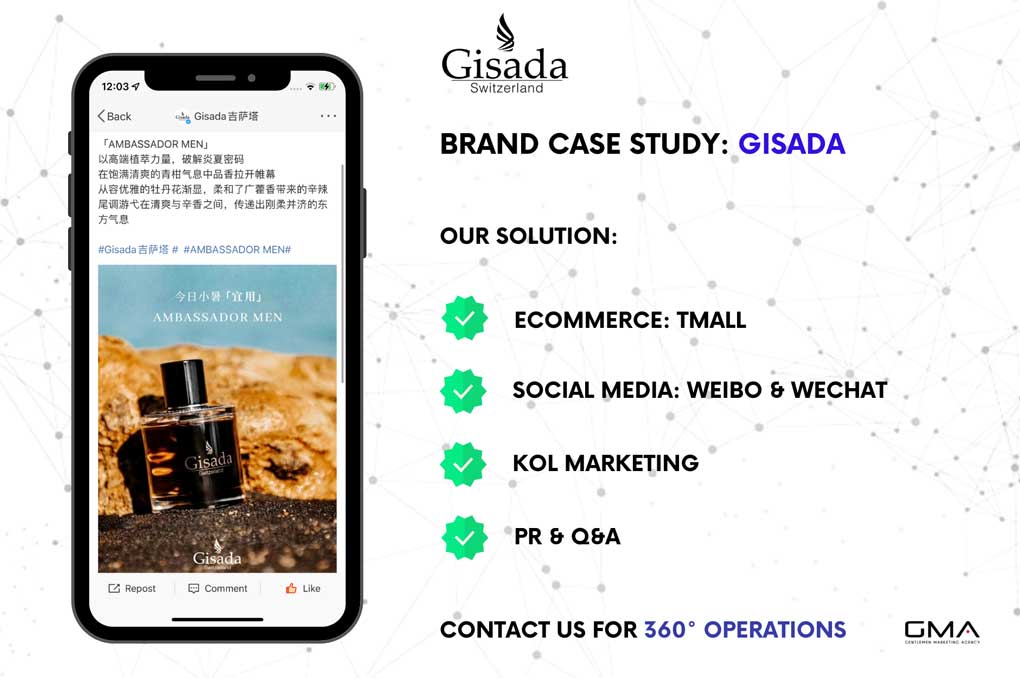
Establish clear performance metrics and targets to evaluate the distributor’s performance. Define key performance indicators (KPIs) such as sales volume, market share, customer satisfaction, or any other relevant metrics. Setting targets and reviewing performance periodically helps monitor the distributor’s effectiveness and allows for course correction, if necessary.
Ensure the distribution agreement includes all necessary contractual obligations and legal considerations. Clearly outline the roles and responsibilities of both parties, including marketing support, product training, advertising, and promotional activities.
Address issues related to intellectual property rights, trademark usage, product warranties, and liability. It is advisable to consult legal counsel or experts familiar with Chinese business law to ensure compliance and protection of your interests.
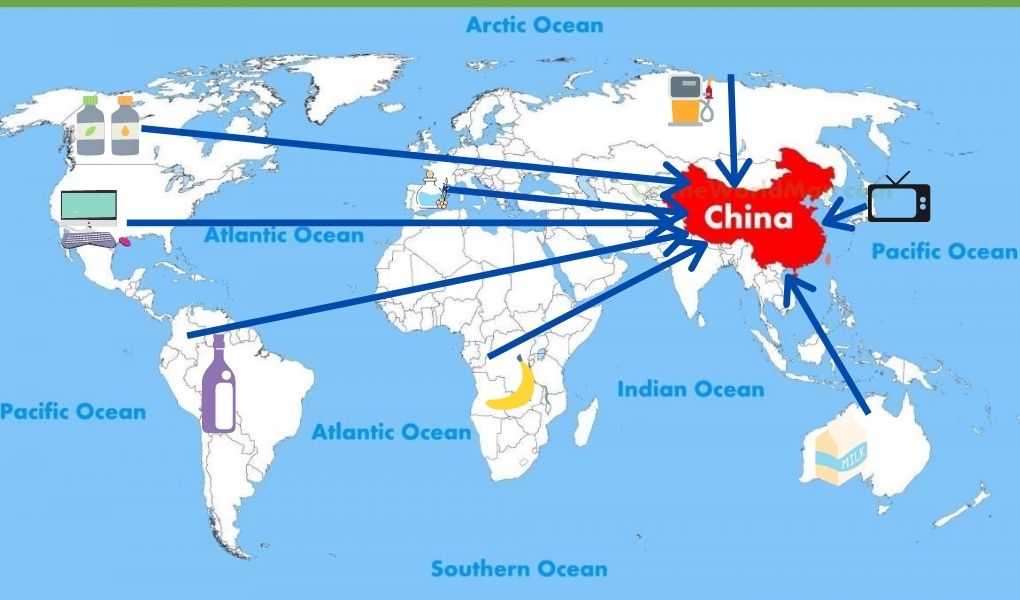
Managing Chinese Distributors Easy to say, hard to Do
Here is some tips done by seoagencychina experts

Clear Communication and Regular Meetings
Establishing clear communication channels is essential for effective management of Chinese distributors. Regular meetings, either in-person or through virtual platforms, provide opportunities to discuss business updates, address concerns, and align strategies. Clear and timely communication helps build trust, ensures both parties are on the same page, and enables effective collaboration.
Providing Product Training and Support
It is crucial to provide comprehensive product training and ongoing support to Chinese distributors. This includes educating them about the features, benefits, and unique selling points of your products. Conduct training sessions to familiarize distributors with product specifications, usage guidelines, and troubleshooting procedures. Regularly update distributors on product updates or improvements to keep them informed and motivated.
Supply Chain and Inventory Management
Collaborate closely with Chinese distributors to manage the supply chain effectively. Establish clear protocols for inventory management, order placement, and fulfillment. Regularly monitor stock levels to ensure adequate inventory and minimize stockouts. Work with distributors to optimize forecasting, production planning, and logistics coordination to streamline the supply chain process and minimize lead times.
Sales and Marketing Collaboration
Foster collaboration between your business and Chinese distributors in sales and marketing efforts.
We advice the brand to take care of the Marketing, branding. Then Share marketing materials, product information, and promotional campaigns with distributors.
Collaborate on developing localized marketing strategies that resonate with the target market. Regularly review and analyze sales data, market feedback, and consumer insights to identify opportunities for improvement and refine sales and marketing strategies.
Performance Evaluation and Incentives
Implement a system for performance evaluation and provide incentives to motivate Chinese distributors. Set measurable performance metrics and targets, and regularly review distributor performance against these benchmarks. Recognize and reward outstanding performance to incentivize continued success. Incentives can include financial bonuses, sales-based commission structures, or exclusive promotional opportunities for high-performing distributors.

Overcoming Challenges
| Problem | Solution |
|---|---|
| Cultural and language barriers | – Invest in cross-cultural training for your team to foster cultural understanding. – Utilize translators or hire bilingual staff to facilitate effective communication. – Develop a cultural sensitivity and adaptability mindset to navigate cultural nuances. – Invest time in understanding Chinese business practices to build strong relationships and bridge the cultural gap. |
| Intellectual property protection | – Safeguard your intellectual property by registering trademarks, patents, and copyrights in China. – Work closely with legal counsel familiar with Chinese IP laws to enforce your rights and take action against infringements. – Maintain strict control over proprietary information and share it only with trusted distributors. |
| Maintaining consistent quality standards | – Establish clear product specifications, quality control processes, and rigorous supplier selection criteria. – Communicate and train distributors on quality standards and expectations. – Conduct periodic audits to verify compliance and identify any quality issues. – Collaborate closely with distributors to address quality concerns and implement corrective actions. |
| Monitoring and managing competition | – Stay informed about competitors’ activities, pricing strategies, and market positioning. – Conduct regular market analysis to identify emerging trends and competitive threats. – Differentiate your products through innovation, unique selling propositions, and superior customer experiences. – Provide value-added services, training, and support to foster strong relationships with distributors. |
| Resolving disputes and conflicts | – Establish clear dispute resolution mechanisms in distribution agreements. – Maintain open lines of communication and encourage dialogue to resolve issues amicably. – Seek mediation or arbitration as per contractual terms if disputes cannot be resolved through negotiation. – Engage legal professionals experienced in Chinese business law for guidance and protection. |
Expand Your Horizons in China: Collaborate with Our Experienced Agency
Finding the right China distributor is key to success in the Chinese market. As you consider potential partners, be sure to keep the following in mind: their level of experience and expertise in your industry, their distribution channels and reach within China, their financial stability and resources, and finally, whether they share your company values. With due diligence, you can find a qualified China distributor that will help your business grow and thrive in this complex but lucrative market.

External assistance is very helpful at the beginning of the market entry. If you want to know more about how Chinese distribution works and how to choose good Chinese distributors, feel free to contact us, we have unique expertise and knowledge of the market thanks to our international marketing specialists.
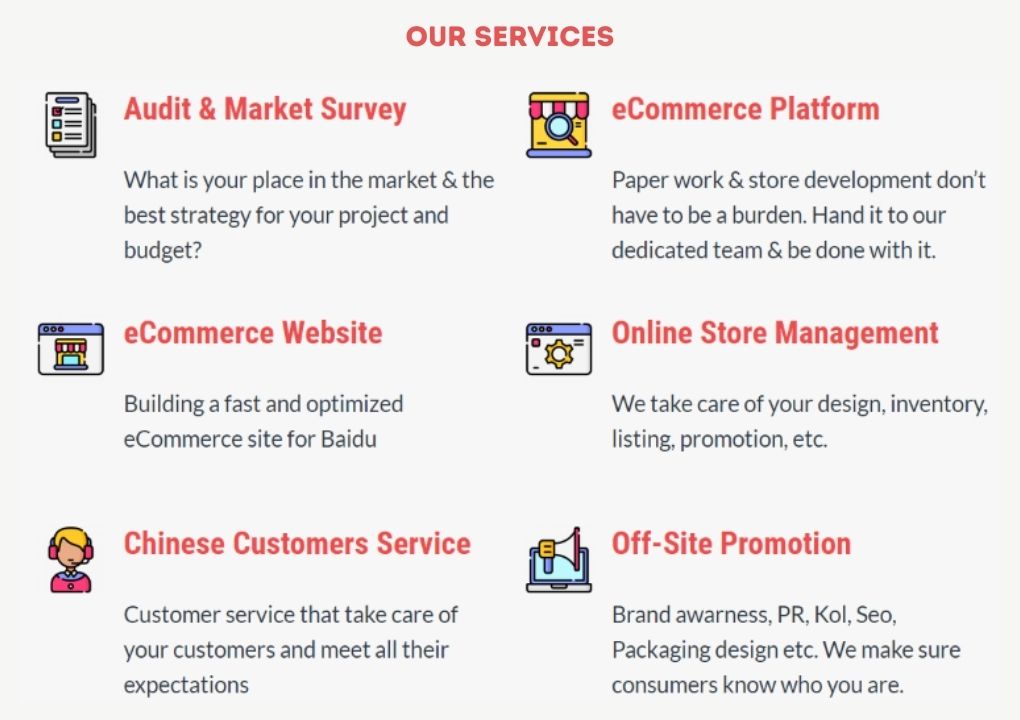
At our agency, with 20 years of experience in navigating the Chinese market, we understand the complexities and nuances of finding and managing Chinese distributors. We offer comprehensive assistance and support in every aspect of the process, from market research and distributor identification to negotiation, contract establishment, and ongoing management.
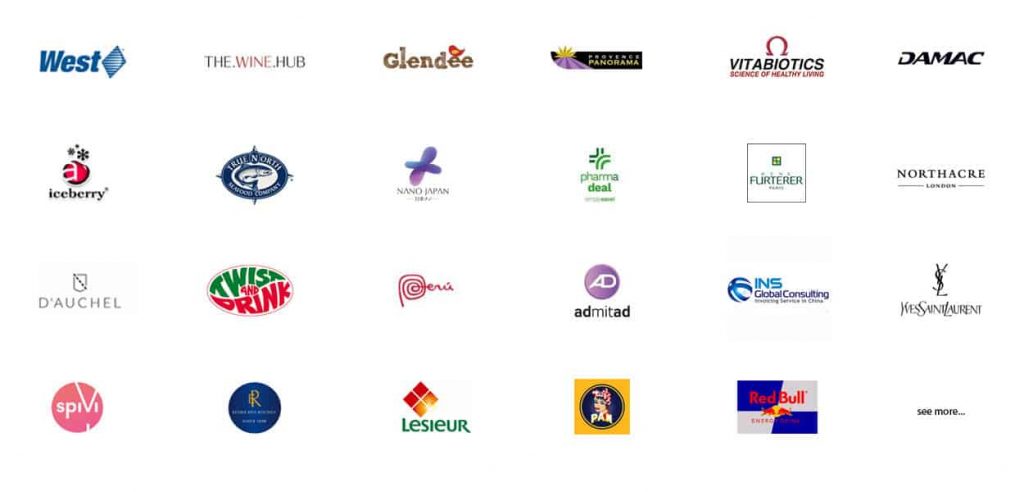






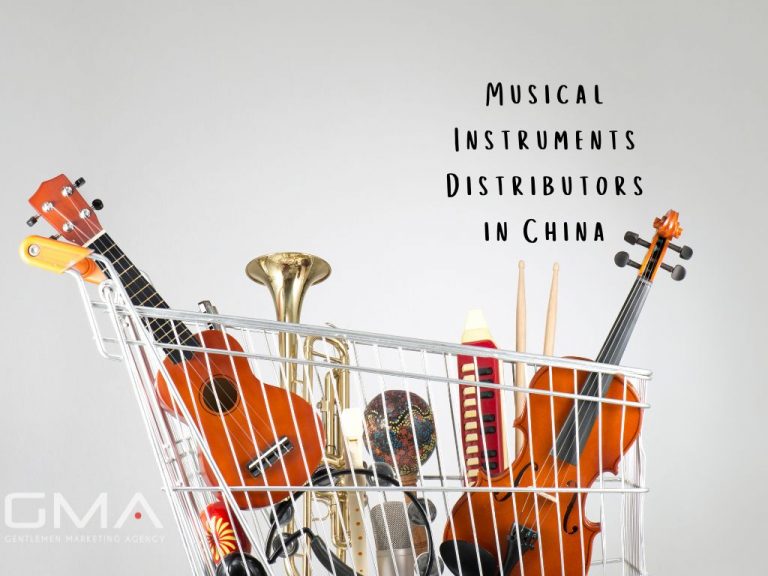
We are searching distributors in China ?
What are Good Agents and distributors in china
how to find sales agents in china?
Hello,
I am a Chinese distributors, we are into healthcare products, and we are searching for good western brands to resell in China.
contact me , give your wechat (We Chinese love to use wechat to chat)
Good day! 0049152
We share your article in our facebook group
please keep in mind that building successful partnerships with distributors requires mutual respect, clear communication, and professionalism.
Basic (i sahre my experience)
Learn to speak Mandarin like a pro: Start by practicing simple phrases like “ni hao” (hello) and “xie xie” (thank you), and work your way up to mastering complex business jargon. Who needs a translator when you can just wing it?
guanxi: Forget about contracts and legal agreements, the key to successful distributor relationships in China is all about building strong personal connections. Start by sending your distributor a big red envelope filled with cash – that’s sure to seal the deal!
Build Guanxi, they will like it
Know your numbers: Brush up on your math skills so you can negotiate prices and quantities like a pro. And if you’re not sure, just make up a number and hope for the best.
Gift-giving is key: Show your appreciation to your Chinese distributor by giving them lavish gifts like luxury watches, designer handbags, and bottles of top-shelf liquor. Who needs profit margins when you can buy your way to success?
Be flexible: In China, business moves at lightning speed, so be prepared to change course at a moment’s notice. If your distributor suddenly decides they want to sell something completely different from what you agreed upon, just go with the flow!
Remember, while these tips may be humorous, it is important to approach distributor relationships with respect, professionalism, and cultural sensitivity.